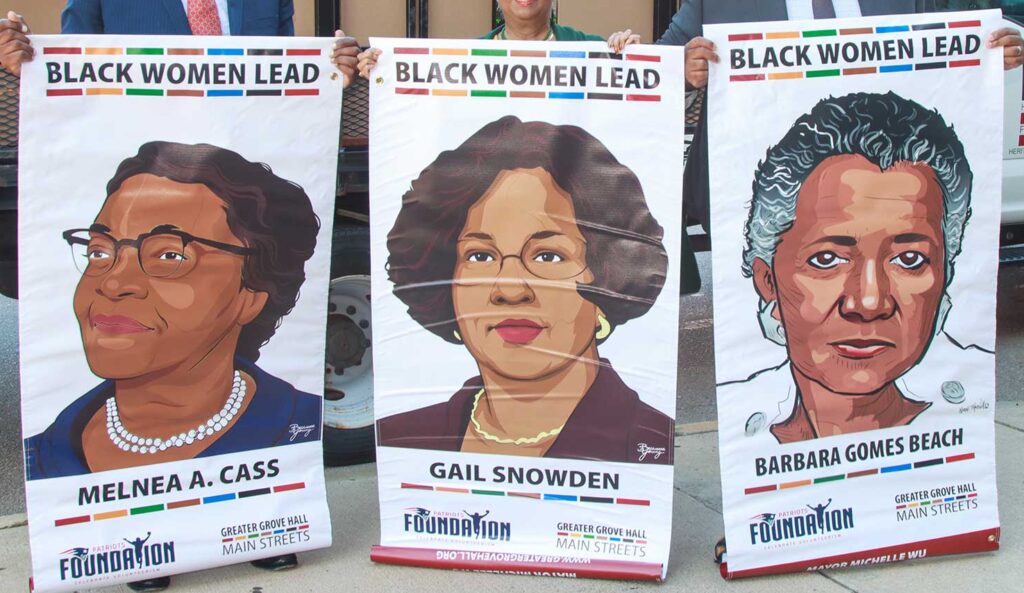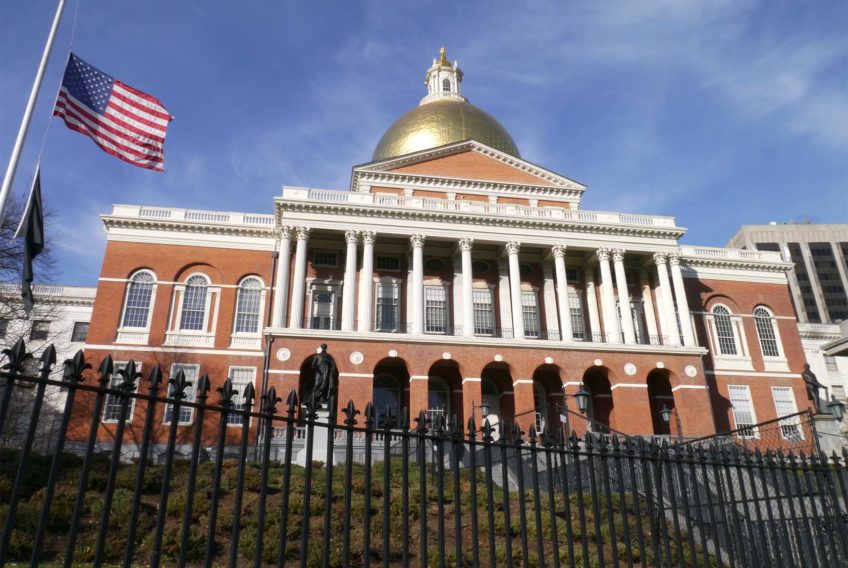
At a time when some conservative leaders are questioning the legitimacy of Black studies and disparaging lessons about Black history or racism as “woke” or mislabeling them as “Critical Race Theory,” we at Greater Grove Hall Main Streets did something different. We have been celebrating 212 of Boston’s most admired, beloved and successful Black women leaders who were responsible for shaping the city through their work in arts and culture, legislation, health, education, community building and raising a generation of leaders, thereby improving the quality of life for every resident.
When it comes to Boston, most people are aware of the Irish, Italian and Brahmin influences. But many are not aware of the collective and cumulative impact Black women have had over the last 300 years. The Black Women Lead (BWL) project helps fill this knowledge gap by recognizing leaders who made their marks from the 1700s through the present day. They include abolitionists, suffragists, Underground Railroad workers, doctors, lawyers, judges, professors, elected officials, community activists and those from blue, pink and no-collar professions, from various faith traditions, social classes, political affiliations and sexual orientations and, for most, their legacy as seniors and role models.
Given how Black women are portrayed in both Black and white media, it is time to rewrite the narrative because what we know about their history is often missing, forgotten or distorted. Looking at their accomplishments from a historical perspective, we see a spectrum of strong Black women and their progression, from escaped slaves — who, though living in fear of the Fugitive Slave Act, still spoke out as abolitionists — to elected officials and judges at the city, state and federal levels.
The BWL banner project is a partnership between Greater Grove Hall Main Streets and the New England Patriots Foundation. The Kraft family said yes because they know something about honoring Hall of Famers, and this is another kind of Hall of Fame.
The banners stretch for two miles along Blue Hill Avenue, where over 20,000, mostly commuters, can see them daily. The display adds beauty and provides inspiration. Some have described BWL as “beautiful, empowering, inspiring.” Others have been brought to tears.
As an artist, this is my Christo. It provides placemaking for Grove Hall, promotes Black art, honors Black women and inspires us all. It is in memory of my grandmother Maxine Moss and great aunt Anna Moss who graduated from college during the Depression, becoming Black women leaders in their day.
The 600 nominations were gathered from prior lists, ballots, emails, experts, research and self-nominations. The students of Mother Caroline Academy in Dorchester were helpful as their nominations inspired us to select women from as many different professions as possible, so the girls would know whatever career path they choose, there was a Black woman from Boston who had already done that. If not, they could be the first to do something like many of the women honored.
The selection criteria included women who were the first to do something and those who had things named after them, from scholarships to buildings. Some demonstrated leadership in their professions, while others did in their neighborhoods by fighting against drugs and gangs or for welfare reform. Still others fought injustice in the classroom, courtroom or boardroom. BWL includes both Grammy and Emmy winners and Hall of Fame inductees.
We defined leadership broadly to include extraordinary role models like the woman who had 50 foster children or the woman who worked as a foster grandmother for 25 years and retired at age 95. Many of the honorees demonstrated leadership in more than one profession.
“As a longtime champion of women and girls, I think it is important to recognize Black women have been fighting to make Boston and the world a better place for the last century. This not only honors our past as Black women, but it provides role models for our girls, who are our future change makers,” said Congresswoman Ayanna Pressley.
We have a $40,000 GoFundMe goal to start the next phase of the project. My hope is to inspire a Black Women Leads movement. where every city finds a visible way to recognize the contributions of their own.
The banners are a testament to our collective self-efficacy, and with God, nothing is impossible, as the “great cloud of witnesses” who have “fought the good fight” and have gone before us testify.
Ed Gaskin is Executive Director of Greater Grove Hall Main Streets.







